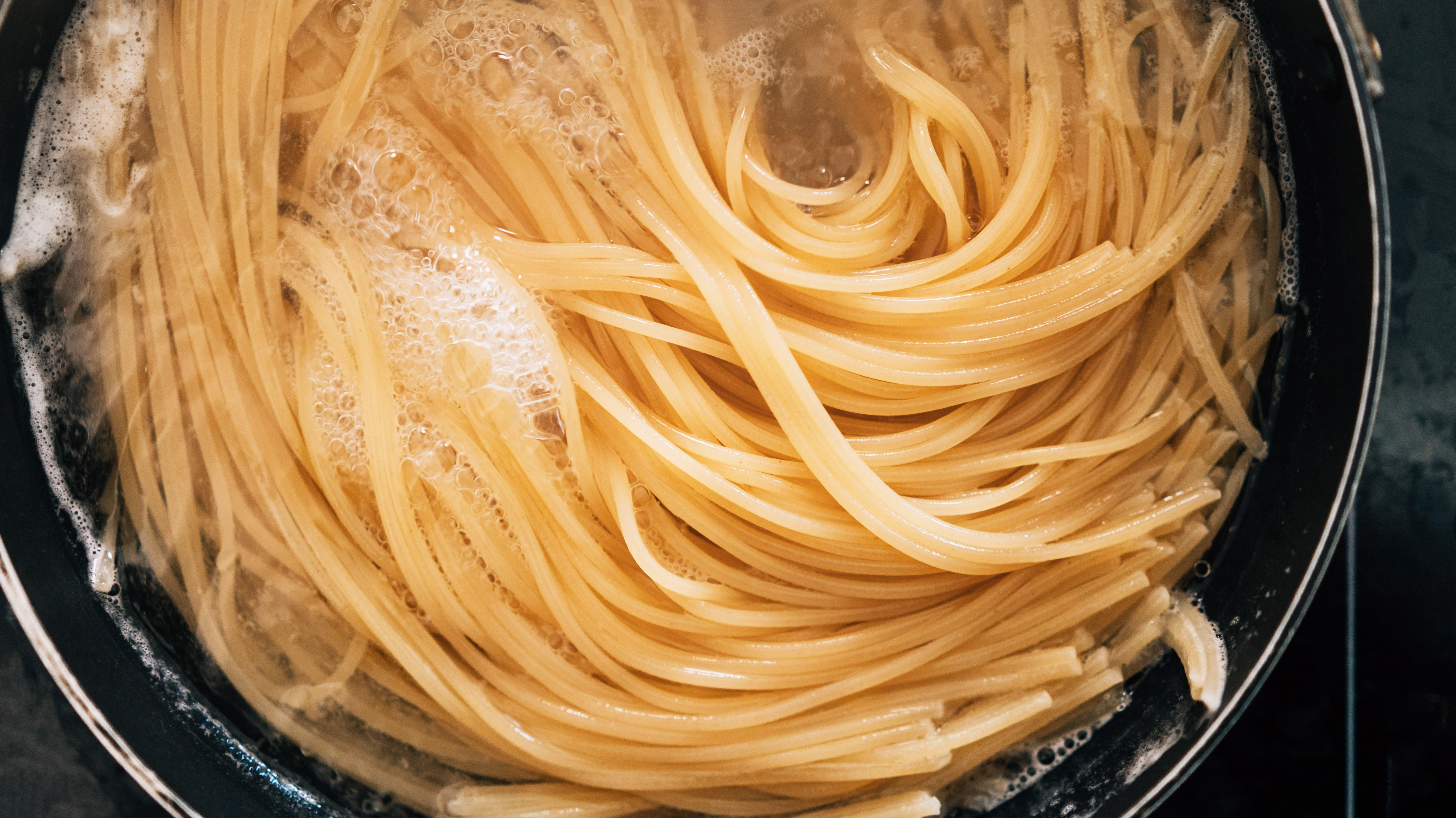How To Cook Pasta With Less Energy, According To A Nobel Prize–Winning Physicist
This simple technique could save millions of dollars in energy costs.
The battle against inflation and shortages isn't just hitting us hard here in the United States. In fact, inflation is even higher in European countries, due to their proximity to Russia and Ukraine, whose conflict is the cause of many of our current supply chain issues and the rising cost of resources, according to Pew Research Center. The European Union in particular has been working to shift away from its reliance on Russian gas, and in Italy, that's threatening one of the population's most beloved foods: pasta.
The energy-saving pasta cooking technique
The average Italian citizen consumes around 51.8 pounds of pasta each year, Forbes reports. It's an energy intensive process, requiring high amounts of electricity to get large pots of water not only hot enough to boil, but to keep them hot enough to continue boiling. According to a study from Science Direct, the standard method of cooking pasta uses an average of 1.5 kWh of energy. To give you an idea of what that's comparable to, it would take a 100-watt lightbulb 10 hours to yield that same amount of energy.
Italian Physics Nobel Prize laureate Giorgio Parisi posted to his Facebook page this week an alternative pasta cooking method that saves energy. He suggests that you simply use energy just to get the water boiling, then throw in your pasta, put the lid on the pot, and let the heat contained in the pot cook the pasta from there. Unione Pastai, an association of pasta producers, supported this technique as early as May, Forbes reports, anticipating the ongoing rising energy costs.
And the costs could be major for the Italian economy—Forbes posits that if everyone adopts the Parisi method, that could save Italy 350 million kWh of energy and around $ 47.6 million. On top of that, cutting pasta's cooking time could save 29 pounds of CO2 and 18 gallons of water usage per person on a yearly basis.
Italians are pushing back on this approach, finding it hard to let go of traditional cooking methods, though some have found a compromise, reducing cooking times and enjoying their pasta more al dente than usual. But as this period of economic downturn continues, it might be worth it for all of us to embrace the Parisi method to maintain our pasta habits.
